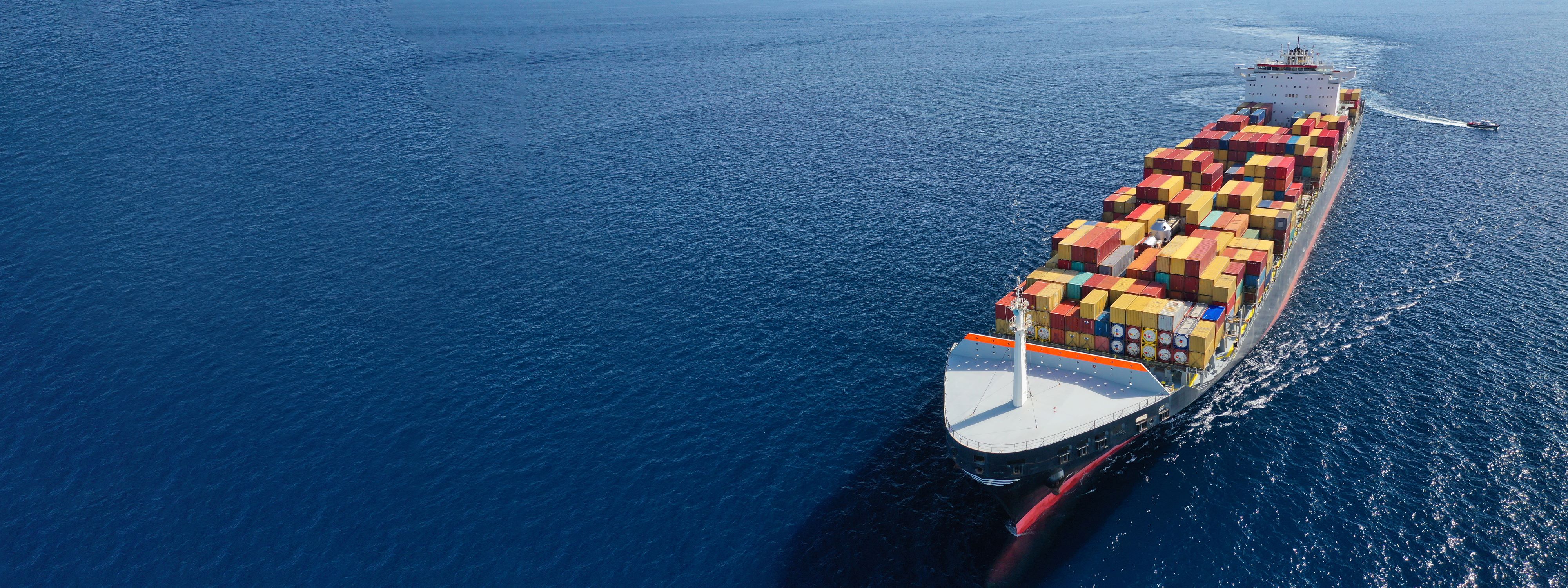
In the latest shipping round-up, the IOE&IT Daily Update covers climate-related disruption to two canals critical to global trade, a proposal for a global carbon tax on shipping and the latest from the Ukraine grain deal.
Panama Canal
Transit through the Panama Canal has been slowed temporarily by droughts thought to be a result of climate change, as temperatures from El Niño weather have put pressure on the area’s water resources.
According to CNBC, the Panama Canal Authority has reduced the number of daily transits to between 30 and 32 a day, compared to its normal daily rate of 34 to 36 transits.
The reduced passages are meant to limit the amount of water being lost when a ship moves through older canal locks. This means that planned restrictions on cargo, which would have reduced carrying capacity by 40%, have been postponed.
Even with the restrictions, containers are passing through at 40% capacity anyway due to being loaded weeks prior to meet the requirements that were expected.
Reuters reports that Panama’s rainy season is also expected to give some respite to shippers.
Rhine
Another important artery for trade, this time in Europe, is also facing climate-related disruption, resulting in higher costs being charged.
The Loadstar reports that operators along the route have added a “low-water” surcharge to shipments, with global shipper MSC passing this cost on to customers.
MSC said that the surcharges only applied to “barge, or barge-road transports both pre and on-carriage from or to the ports of Antwerp and Rotterdam to Germany, France and Switzerland via the Rhine river.” They added that so-called “feeder services” between Antwerp and Rotterdam are not affected.
Although the water level changes are reportedly not as severe as last year, Mitchell van der Hoeven, a broker at Riverlake, told Bloomberg that he expected August to be “worse” than the same point in 2023.
Decarbonisation
A new report from Dutch consultancy CE Delft says that shipping could slash its carbon emissions in half without hitting worldwide trade.
The research showed that if the maritime transport industry used existing technology and combined this with research into more innovative technology, it could reduce emissions by 36% and 47% within the next decade, compared with 2008 levels, according to the Guardian.
Techniques, such as better maintenance of existing fleets and cutting sailing speeds, combined with the use of hydrogen or biofuels, would be key drivers behind this reduction.
The report notes that this would increase shipping costs by between 6% and 14% on average.
Separate research from University College London has estimated that a $100bn in costs is added for every year of delay in decarbonising this decade if the industry is to hit net-zero by 2050.
Carbon levy
Ahead of the International Maritime Organization’s (IMO) Marine Environment Protection Committee meetings next week (3-7 July), doubts remain about a proposed global carbon levy on shipping.
The committee is expected to update its greenhouse gas strategy as part of its net-zero push, with a debate on the levy expected as part of this process.
Al Jazeera noted that a finance and climate meeting last week, hosted in Paris, failed to reach a consensus on the proposal, despite around 20 nations voting in favour.
A consortium of Pacific nations, led by the Marshall Islands, proposed a charge starting at $100 a tonne, with dirtier fuels being taxed more in order to make them as costly as cleaner equivalents, as reported by Splash 24/7.
French president, Emmanuel Macron, a proponent of the tax, stated that the US and China remained sceptical.
TradeWinds reports that Joe Biden’s administration remained “open” to the levy but noted that the IMO is not expected to make a final decision on the proposal in 2023.
Ukraine grain deal
The Black Sea Initiative, which has faced months of uncertainty despite multiple renewals, is enduring yet more scepticism about its long-term future.
A senior Ukrainian diplomat said she was “99.9%” sure Russia would withdraw from the agreement, citing Russian construction of a pipeline to export ammonia, which meant it no longer needed to ship the goods from Odessa.
Ukrainian agriculture minister, Mykola Solsky, said earlier this month that the country had a ‘plan B’ if Russia did withdraw.
The Daily Sabah reports that the UN has called for the removal of all barriers to renewal of the deal, citing the 32m tonnes of foodstuffs exported under the agreement.
Last week, UN secretary-general António Guterres said that he was “disappointed” by the slow pace of inspections, as well as the “exclusion” of the Ukrainian port of Yuzhny/Pivdennyi from the initiative.


